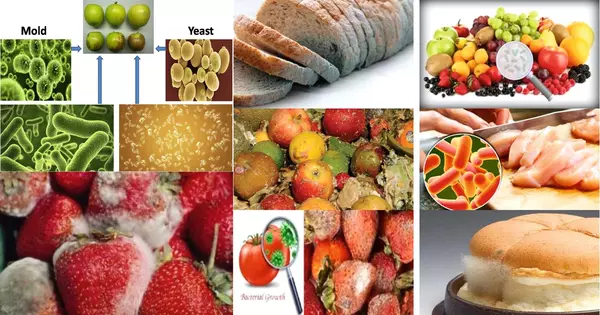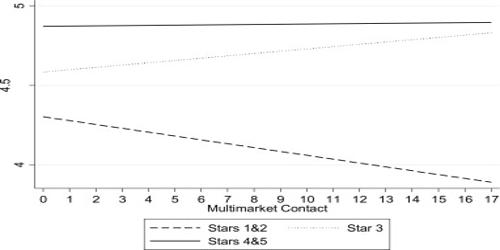Food spoilage is the process by which a food product becomes unfit for consumption. It is the process by which food becomes unfit for human consumption as a result of microorganism growth, enzymatic reactions, or chemical changes. The cause of such a process is due to a variety of external factors as a result of the type of product, as well as how the product is packaged and stored. Foodborne illnesses can occur when spoiled food has an unpleasant odour, taste, texture, or appearance.
There are various factors that contribute to food spoilage:
- Microorganisms: Bacteria, moulds, and yeasts are the main causes of food spoilage. They can multiply quickly in conditions that favour them, such as warm temperatures, high humidity, and nutrient-rich environments.
- Enzymatic reactions: Bacteria, moulds, and yeasts are the main causes of food spoilage. They can multiply quickly in conditions that favour them, such as warm temperatures, high humidity, and nutrient-rich environments.
- Oxygen exposure: Air exposure, particularly in the presence of moisture, can promote spoilage. Oxygen can oxidise fats, causing rancidity, and it also promotes the growth of spoilage-causing microorganisms.
- Temperature: Temperature plays a crucial role in food spoilage. Most microorganisms thrive in the temperature range of 40°F to 140°F (4°C to 60°C). Keeping food outside this temperature range, either too warm or too cold, can slow down or prevent spoilage.
- Moisture content: High moisture levels create an environment conducive to microbial growth. Foods with high water content, such as fruits, vegetables, and meats, are particularly susceptible to spoilage.
To prevent food spoilage, it is essential to follow proper food storage and handling practices:
- Refrigeration: Refrigerating perishable foods, such as meats, dairy products, and leftovers, at temperatures below 40°F (4°C), slows the growth of spoilage-causing microorganisms.
- Freezing: By inhibiting microbial growth and enzymatic reactions, freezing food at or below 0°F (-18°C) can preserve it for longer periods of time. It is critical to use proper packaging to avoid freezer burn.
- Proper packaging: Using airtight containers, vacuum-sealed bags, or tightly wrapping food in plastic wrap can help reduce exposure to air and moisture, thereby slowing spoilage.
- Maintaining cleanliness: Cross-contamination and the transfer of spoilage-causing microorganisms can be avoided by keeping kitchen surfaces, utensils, and hands clean.
- Monitoring storage times: Keeping track of the expiration dates and recommended storage times for various food items can help prevent consuming spoiled food.
Every year, one-third of the world’s food produced for human consumption is wasted due to food spoilage. Bacteria and various fungi are the causes of spoilage and can have serious consequences for consumers, but there are preventive measures that can be taken.
















